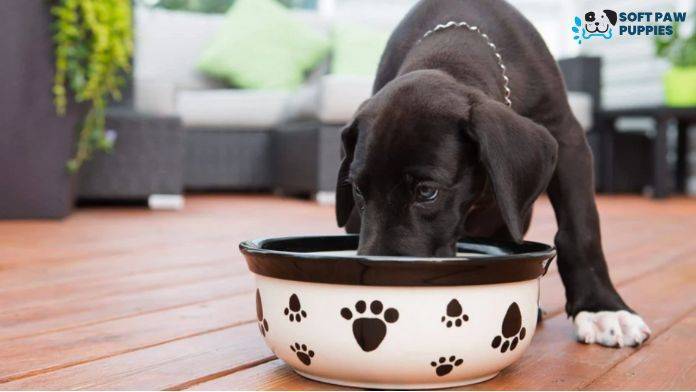
As a puppy owner, ensuring your furry friend gets the right nutrition is paramount, especially during their crucial growth stages. Protein is an essential component of a puppy’s diet as it aids in muscle development, tissue repair, and overall growth. But with so many options available, it can be overwhelming to determine which foods are high in protein and suitable for your puppy. In this article, we’ll explore some excellent protein sources tailored to meet the dietary needs of your growing pup.
Importance Of Protein Levels In Dog Food
Dog diets that are complete and balanced are designed to supply your adult dog with enough protein and amino acids in their diet to meet their maintenance requirements.
However, as they grow and develop, puppies need additional protein in their diet. Choosing a diet designed for pups, often known as “All Life Stages,” is crucial. To maintain their lean body mass, senior dogs also require larger protein intakes. What foods are high in protein for puppies?
How Much Protein Does A Dog Need?
How much protein your dog requires will vary depending on some factors, including health, lifestyle/activity levels, and life stage.
Life Stage
Puppies
Adult dogs require enough protein and amino acids in their diet to sustain their maintenance needs, and complete and balanced dog diets are designed to meet these demands. On the other hand, growing pups need more protein in their diet as they mature. Fortunately, high-protein puppy food shouldn’t be a concern because their meal should be prepared appropriately. Consuming too much protein may indeed hasten their development. What foods are high in protein for puppies?
Senior Dogs
Dogs require more protein in their meals as they age to keep their bodies in optimal shape. A suitable amount of protein is included in the majority of senior dog foods. Consult your veterinarian if you believe your pet might need more protein.
Gestating and Lactating Dogs
A dog that is pregnant has to eat a lot of protein. Protein is only one thing to think about when it comes to nursing dogs. A high-quality, calorie-dense food rich in nutrients is essential for a nursing dog.
It’s advisable to speak with your veterinarian before choosing a meal to make sure your nursing or gestating dog will get enough calories, fat, and protein during this critical period.
Types Of Protein
Lean Meats
Puppies can get great, high-quality protein from lean meats. Lean beef cuts, turkey, and chicken are good sources of the critical amino acids needed to build muscle. Make sure the meat is cooked all the way through when preparing it for your puppy to minimize any possible hazards related to raw meat.
Fish
Omega-3 fatty acids, which are found in fish and contribute to good skin and coat growth, are also high in protein. Mackerel, salmon, and tuna are excellent puppy foods. But watch out for bones, and make sure the fish is cooked through to get rid of any potentially dangerous bacteria. What foods are high in protein for puppies?
Eggs
For puppies, eggs are a cheap and wholesome source of protein. They are quickly digested and provide all the necessary amino acids needed for development. Give your dog cooked eggs to reduce the possibility of salmonella infection.
Dairy Products
Dairy products, which include cottage cheese and plain yogurt, are rich in protein and calcium, which is necessary for healthy bones and teeth. But, since some puppies might not be able to tolerate lactose, it’s important to watch how your puppy responds when you start giving them dairy products.
Legumes
Puppies can benefit from plant-based protein sources like legumes, chickpeas, and beans, particularly if they are vegetarians or vegans. In addition, these meals include fiber, vitamins, and minerals that are vital for good health.
Commercial Puppy Food
A lot of commercial puppy feeds are designed to give developing puppies the proper ratio of nutrients, including protein. Seek for selections where the primary component is a high-quality source of protein, including fish, poultry, or lamb.
Balanced Homemade Meals

Make sure your dog eats a healthy diet if you would rather cook for them at home. Create recipes with a range of protein sources and other necessary nutrients by consulting a veterinarian or canine nutritionist.
Conclusion
A puppy’s diet must include protein since it promotes healthy growth and development. You can give your puppy the nutrition they require to flourish by including a variety of foods high in protein in their meals. Lean meats, seafood, eggs, dairy, legumes, and commercial puppy food are all good options, but the most important thing is to make sure their diet is balanced and catered to their individual needs. For advice on the optimal nutrition plan for your puppy’s needs, always visit a veterinarian. You can prepare your puppy for a long, healthy life with the right diet.
FAQ
Can Puppies Eat Raw Meat For Protein?
Although some people support giving dogs raw meat, it’s important to go cautiously. Both people and pups may be at risk for health problems due to the presence of dangerous germs in raw meat. It is best to speak with a veterinarian before giving your dog raw meat.
Are There Specific Commercial Puppy Foods That Are High in Protein?
To promote a puppy’s growth and development, a lot of commercial puppy diets are made with a high protein content. Products with the labels “for puppies” or “puppy formula” should include meat or meat meal listed as the main component.
How Much Protein Do Puppies Need In Their Diet?
Puppies have different needs for protein based on breed, size, and degree of activity. Puppies often need more protein in their diets than adult dogs to support their growth and development. To find out how much protein is right for your puppy’s needs, speak with a veterinarian.
What Are The Best Sources Of Protein For Puppies?
Puppies benefit greatly from lean meats like turkey, chicken, and beef as well as seafood like salmon and tuna. Excellent choices include eggs, dairy products like cottage cheese and plain yogurt, and plant-based foods like quinoa, lentils, and chickpeas.






